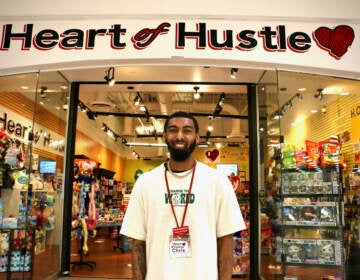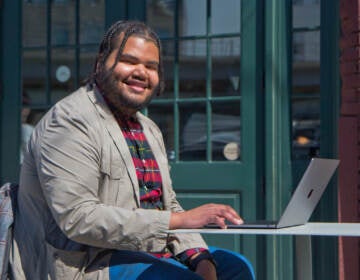Philly’s Black-owned business crisis: Walloped by the pandemic and closing at faster rates
The number of active Black business owners fell by 68% from early March to July, according to the Census Bureau. Active white business owners fell by 44%.
On the streets of Manayunk, Jimmy Mills is known by another name: “Chef Jimmy.”
The moniker has always filled him with pride. He had aspired to it ever since he was a kid in the Bronx and Westchester County, eating meals that combined the cuisine of his Jamaican father and Korean mother.
In 2015, Mills and his brother Jason realized their ambitions by co-founding a Korean-Jamaican fusion restaurant. The Spicy Belly quickly became popular with locals and tourists alike, winning gold in a Food Network competition and employing more than 20 people.
“It was always a dream of ours to be in business as brothers. To have a Black-owned business, and do it right,” said Mills, 33.
But earlier this month, the Spicy Belly served its last meal. The Manayunk restaurant, like at least several hundred others in Philadelphia, had been put out of business by the pandemic. It had tried to pivot to outdoor dining and takeout, but that wasn’t enough.
Recently, Mills moved his family out of their place above the restaurant. Staying in the neighborhood and hearing his old nickname would be too painful.
“I didn’t want to be constantly reminded,” Mills said, standing amid boxes in his new apartment in Malvern. “It’s been tough.”
The coronavirus pandemic has devastated small businesses across the country, but no group has been hit harder than Black-owned businesses. Nationally, Black businesses have been more likely to be shuttered and less likely to receive the federal aid they requested compared to other groups.
Locally, the picture hasn’t been as clear. The City of Philadelphia doesn’t track business closures. The Philadelphia Association of Community Development Associations, which keeps close tabs on the city’s small businesses, doesn’t have a comprehensive count either.
But estimates of the total count of “active self-employed workers” — a proxy measurement of business owners — is available by county in monthly survey data published by the U.S. Census Bureau. A new analysis of that data, conducted for Keystone Crossroads by the Economy League, illuminates just how unequally the pandemic is hitting Philadelphia’s business community.
In the city, the number of active Black business owners fell by 68% from early March to July, according to the Census Bureau estimate. The number of active white business owners in the city fell by just 44% during that time.
“This is the same story we have always heard in Philadelphia,” said Michael Shields, project manager with the Economy League. “Black residents in this city are always going to be disproportionately affected by economic tremors, and public health issues. You name it, they get the worst of it.”
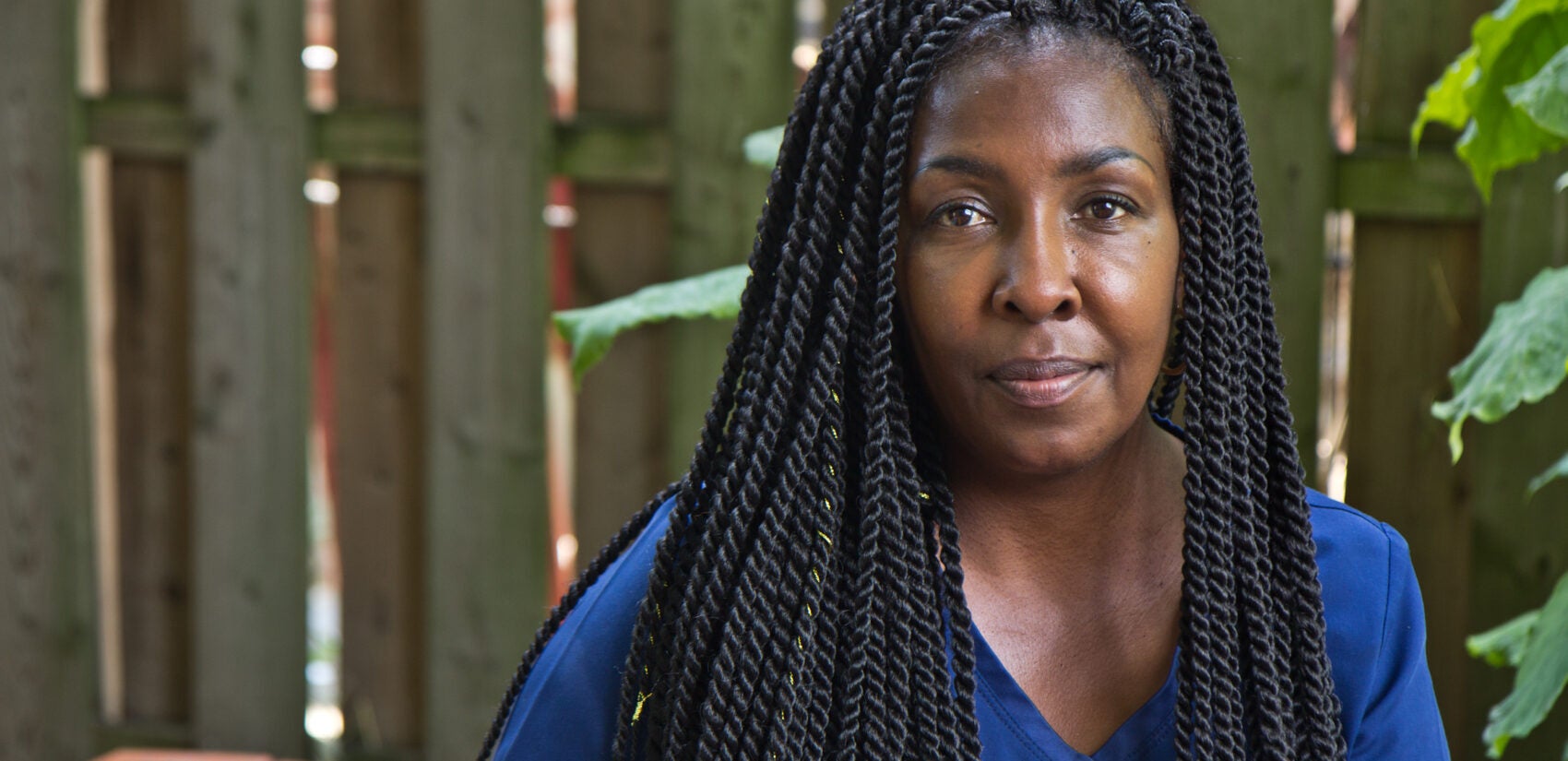
‘We’ve been burnt before’
According to the U.S. Census Bureau, in 2012 just 6.3% of all businesses with employees in Philadelphia were Black-owned, a figure starkly disproportionate to the city’s Black population.
But when you count only business owners in the city who have no employees — barbers, caterers, day care operators — that number balloons to 26%.
Microbusinesses often play an outsize role in their community, something that Wanda Walker knows well. Her father, Demsey Walker, operated a fruit stand on 52nd Street in West Philadelphia from the late 1970s to 2008.
“He was literally the neighborhood dad,” said Walker, 55. “The moms would drop their kids off with him … and he ended up watching them and feeding them all day.”
When her father had a stroke in 2009, Walker left her job as a medical technologist to care for him. In 2012, Wanda opened Read Ready Daycare in Germantown, taking out loans with interest rates of 12% to 15% to finance the project. The business, with its wide grassy lawn and picnic table spray-painted with ‘Black Lives Matter,’ was her attempt to emulate her dad’s role in the community. He died just a few months after it opened.
“He never actually got to walk through this and see it,” Walker said. “But I was doing it because of him.”
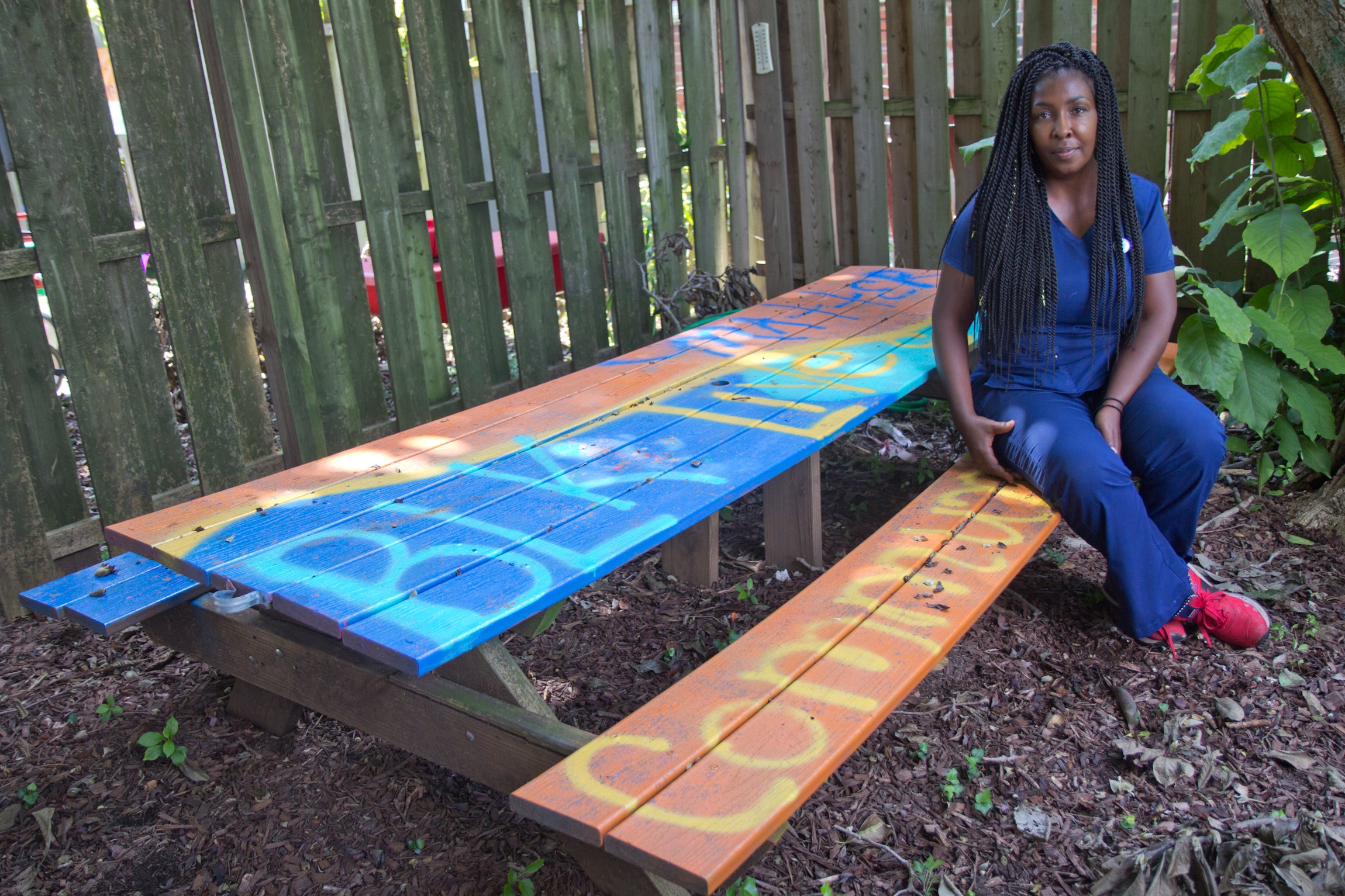
By the beginning of 2020, Read Ready had grown into a successful enterprise, serving about 50 children and employing five full-time staffers. Walker showed up every day in blue nursing scrubs, a remnant of her days as a medical technologist.
But like almost all child care facilities across the state, Read Ready was ordered to close in March when the pandemic hit.
Since then, the child care center has sat empty, weeds growing through a play kitchen on the lawn.
Walker said she would like to reopen, but she doesn’t have the cash to rehire her employees and redesign the day care to meet social distancing requirements. She’s still paying off those high-interest loans, and is also embroiled in a tax fight with the city, which says she owes $19,000 in back taxes on the building that houses her business.
That back-tax bill makes Walker ineligible for Philadelphia’s COVID-19 relief programs. Even so, as a Black woman, she has been wary of applying for the state or federal aid available for businesses hit by the pandemic.
“We know that when they keep putting on the news and media that they have all this money for us, it’s a lie,” Walker said. “We’ve been burnt before.”
‘I am not begging’
Black business owners have ample reason to be mistrustful of financial institutions.
Before the pandemic, Black business owners were nearly twice as likely as white owners to have their applications for business financing rejected, according to the Federal Reserve Bank of Atlanta.
The same report found only about a third of financially “stable” Black employers have ongoing relationships with banks, compared to more than half of white-owned firms.
That inequality has been exacerbated in the COVID-19 era. A national survey conducted from late April to mid-May found that just 12% of Black and Latino business owners who sought assistance from the federal Small Business Administration received what they asked for.
When Jimmy Mills was seeking financing to open The Spicy Belly in 2015, he and his brother were rejected by nine banks — only receiving funding when they happened to meet with a loan officer who was a Korean food connoisseur.
This spring, the brothers applied for a forgivable loan from the federal Paycheck Protection Program. They received less than half of what they asked for.
Mills said that was roughly equivalent to the salaries of three part-time bartenders and a dishwasher, but not enough “to have my chefs come back to work.”
After years of working 12-hour days, Mills is now taking some time off from work. He has a young daughter, and right now he doesn’t feel that it’s safe enough to send her to school.
Ultimately though, Mills said, he’s hopeful that he and his brother can open a restaurant again.
“That’s a dream I continue to aspire to,” Mills said. “Just because we had to close down and had to dismantle doesn’t mean we failed.”
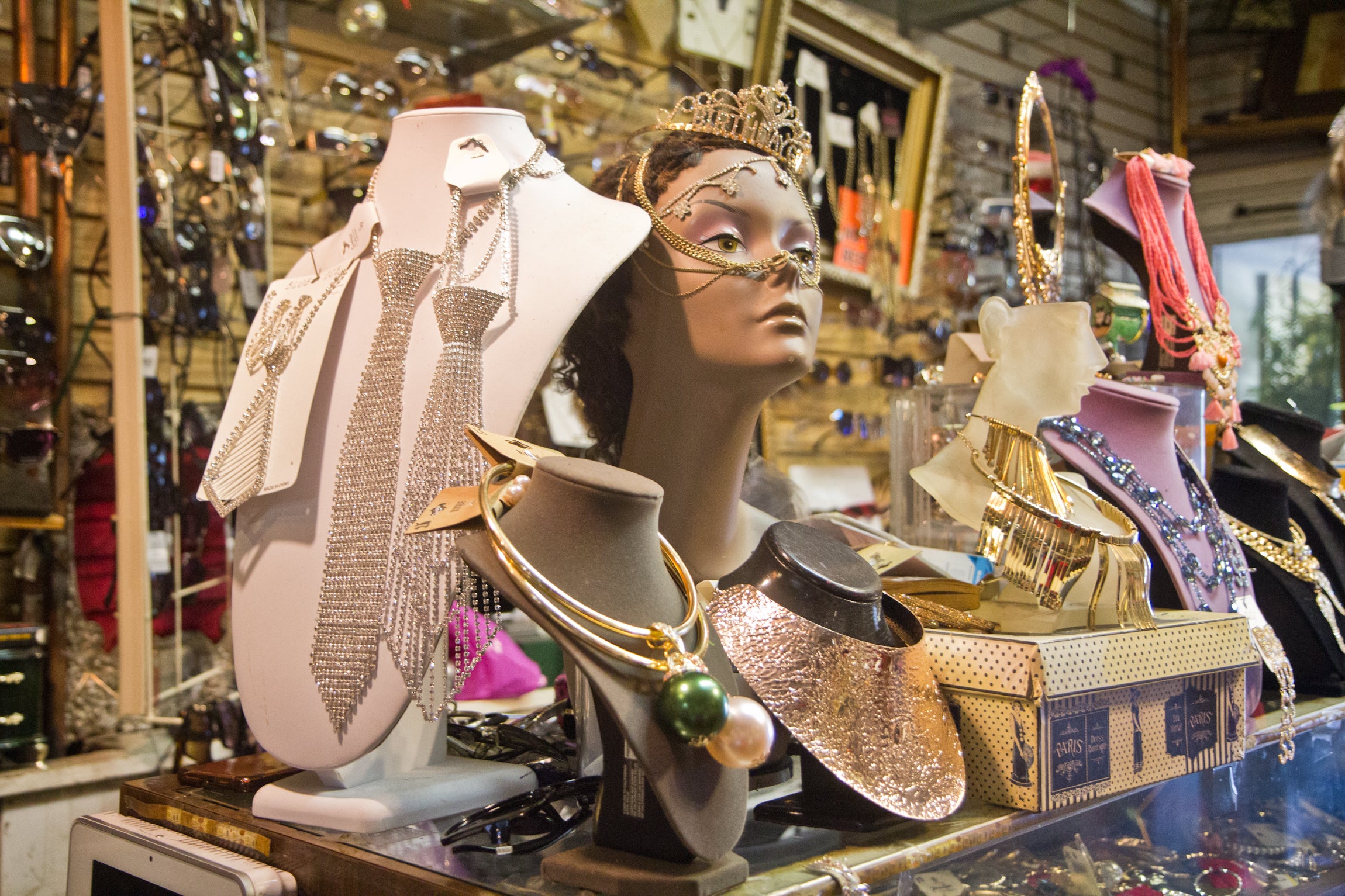
In the long term, advocates say Black business owners will get equal opportunities only if we recognize how they’ve been hampered by centuries of systemic racism and actively work to give them better access to the financial system.
In the short term, to get through the pandemic, they say direct cash lifelines are a must.
“The reality is that there is more capital needed,” said Blessy Thomas, project director with the MBDA Cares Center, a nonprofit at the Enterprise Center working with Philadelphia minority-owned businesses affected by COVID-19.
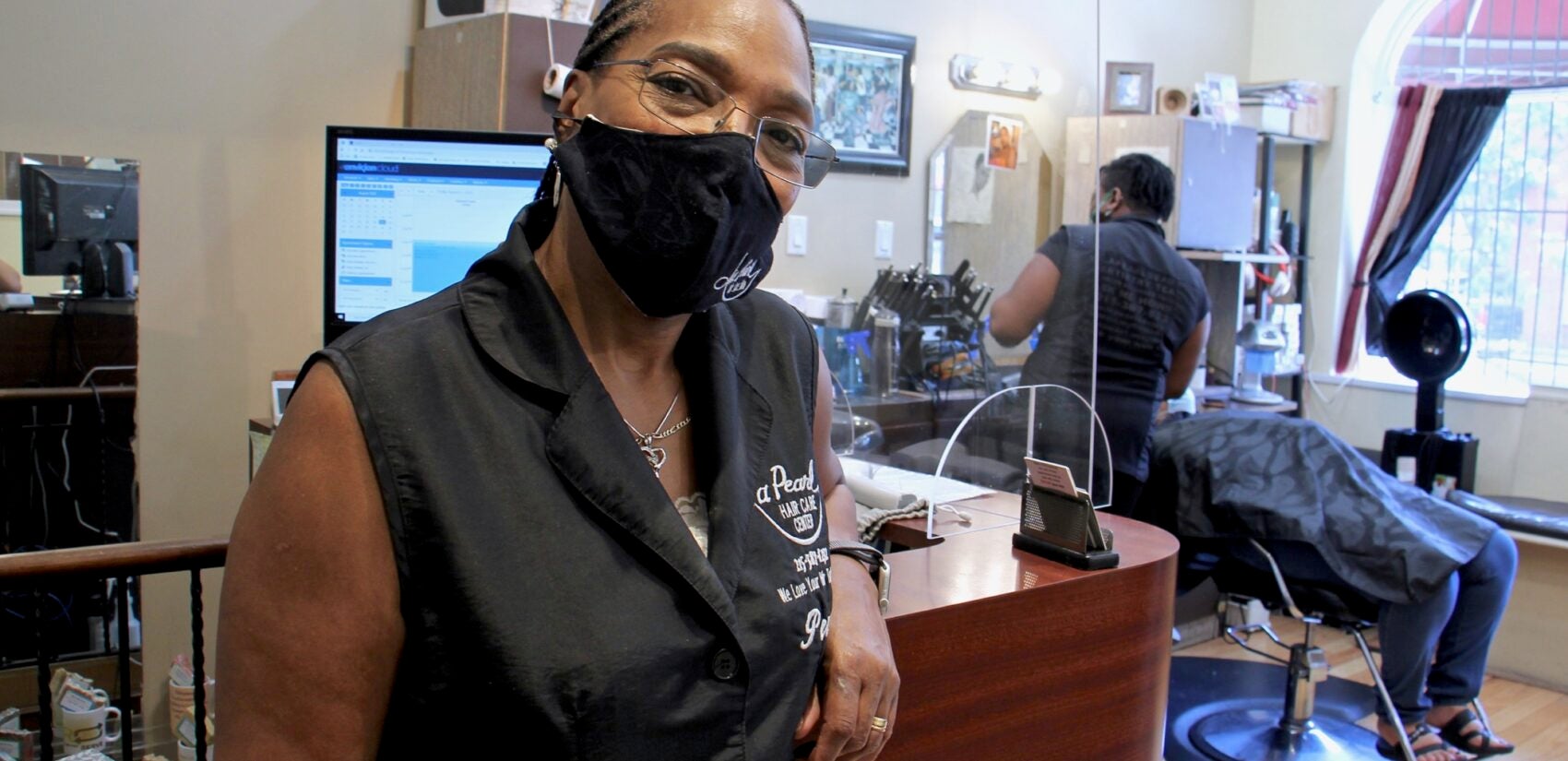
Pearl Bailey-Anderson, 63, knows that better than anyone.
For over 30 years, she’s run La Pearl Beauty Emporium, a cosmetology studio on Lancaster Avenue in Mantua.
Bailey-Anderson built the business without loans or debt, starting with $15,000 in life insurance money she inherited when her mother died. Before the pandemic, business was good: Bailey-Anderson treated the hair of children in the neighborhood, watched them grow and start families of their own, and then treated the next generation’s hair as well.
“We had a flourishing business,” Bailey-Anderson said.
COVID-19 hit hard. Many of Bailey-Anderson’s clients are older, and are nervous about coming back. If things don’t pick up, Bailey-Anderson said, her business could be shuttered by the end of the year.
So when she heard about the Pennsylvania COVID-19 Relief Statewide Small Business Assistance program, she saw it as a lifeline. The grant program, which launched in late June, reserved at least half of its $200 million in grant funding for “historically disadvantaged” business owners — something that’s been hailed as a meaningful step in correcting the racial inequity of pandemic relief so far.
On Aug. 10, state officials announced the first round of funding: 50,000 businesses would receive grants totaling $96 million.
Bailey-Anderson’s wasn’t one of them.
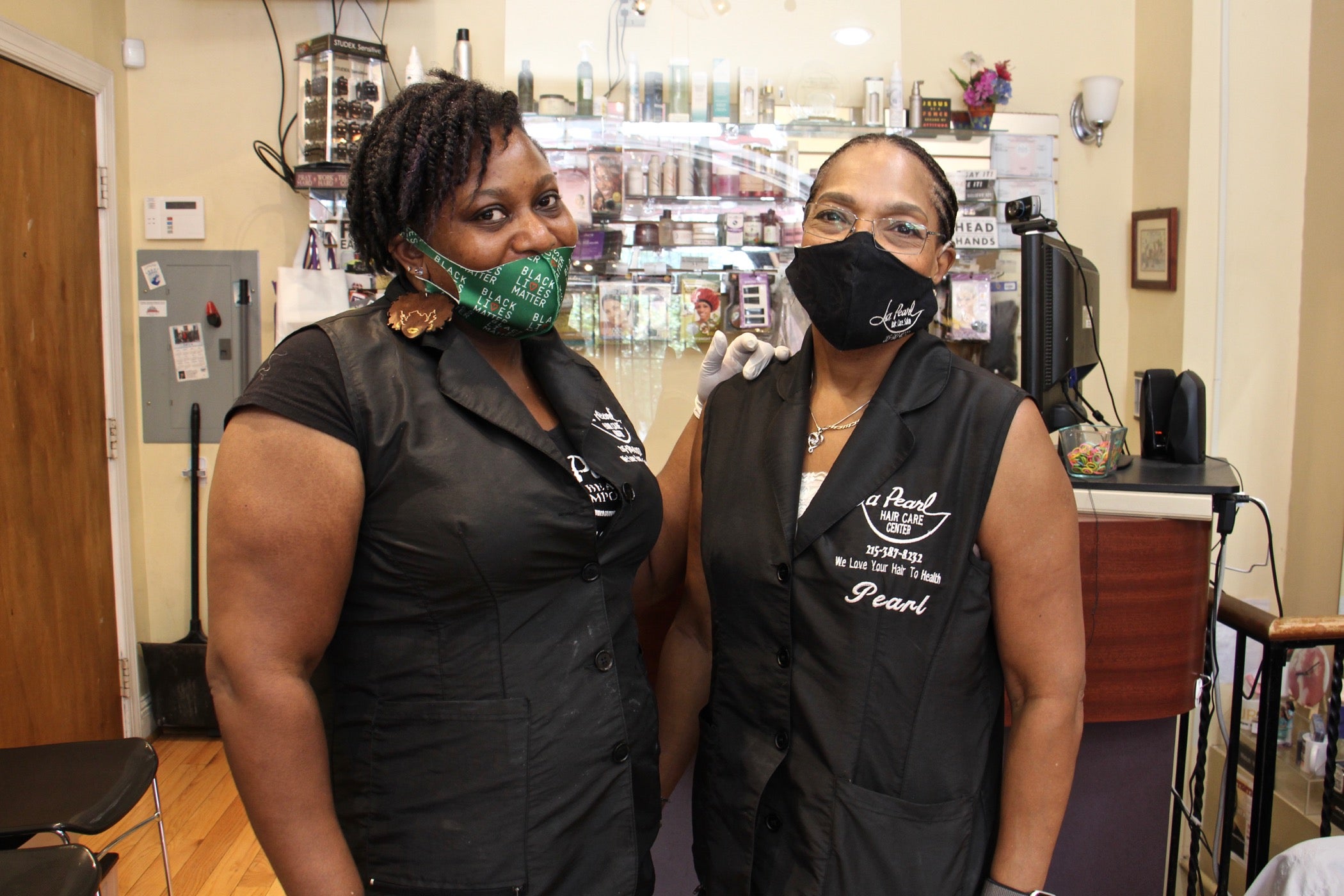
“What do they want from us? Do they want us to be homeless before they help us? We have to beg?” Bailey-Anderson said, tears of rage and frustration streaming down. “I am not begging nobody.”
The state grant program still has about $100 million to distribute, but the need far outstrips the funding: In the first round, about 50,000 businesses applied, requesting a total of $865 million.

‘Got to keep standing’
Applying for business grants and loans can be a job in itself. Just ask Gwendolyn Hosey.
On a recent weekday morning, Hosey left her West Philadelphia home early to drive across town to the Small Business Union, where she spent hours filling out grant and loan applications before heading back to the neighborhood to open up her 52nd Street boutique, Struttin’ Lightly.
“I’m a little tired,” said Hosey, 71. “But I’m blessed.”
Hosey — who goes by “Ms. G” — opened her business in 2000. The store has been a neighborhood staple, selling sunglasses, jewelry, and dress hats on the bustling 52nd Street corridor, once known as West Philadelphia’s “Main Street.”
Running a boutique had long been Hosey’s dream. In the 1990s, looking for a change after years working for the Social Security Administration and then various other jobs, Hosey would take the bus to Manhattan just to study department store displays.
“I would talk to the merchandise, touch it.” Hosey said. “I wanted that energy.”
These days, though, Struttin’ Lightly is a snapshot of the pre-pandemic era. A sign out front advertises goods for prom season. Accessories for weddings and graduations gather dust. Only a supply of face masks, some printed with “Black Lives Matter” and “I Can’t Breathe,” speaks to the upheavals of the last few months.
“We had to go to what is selling and what is needed,” Hosey said.
Struttin’ Lightly avoided the looting that decimated many businesses along the corridor in early June. Hosey’s daughter stood guard from midnight to 6 a.m. protecting the shop. Still, keeping the business afloat has been a struggle. Sales are way down, and water damage to the ceiling requires thousands of dollars in repairs. The store’s soundtrack of soul music is interrupted every few seconds by the harsh beep of Hosey’s alarm system, alerting her that her security bill is long past due.
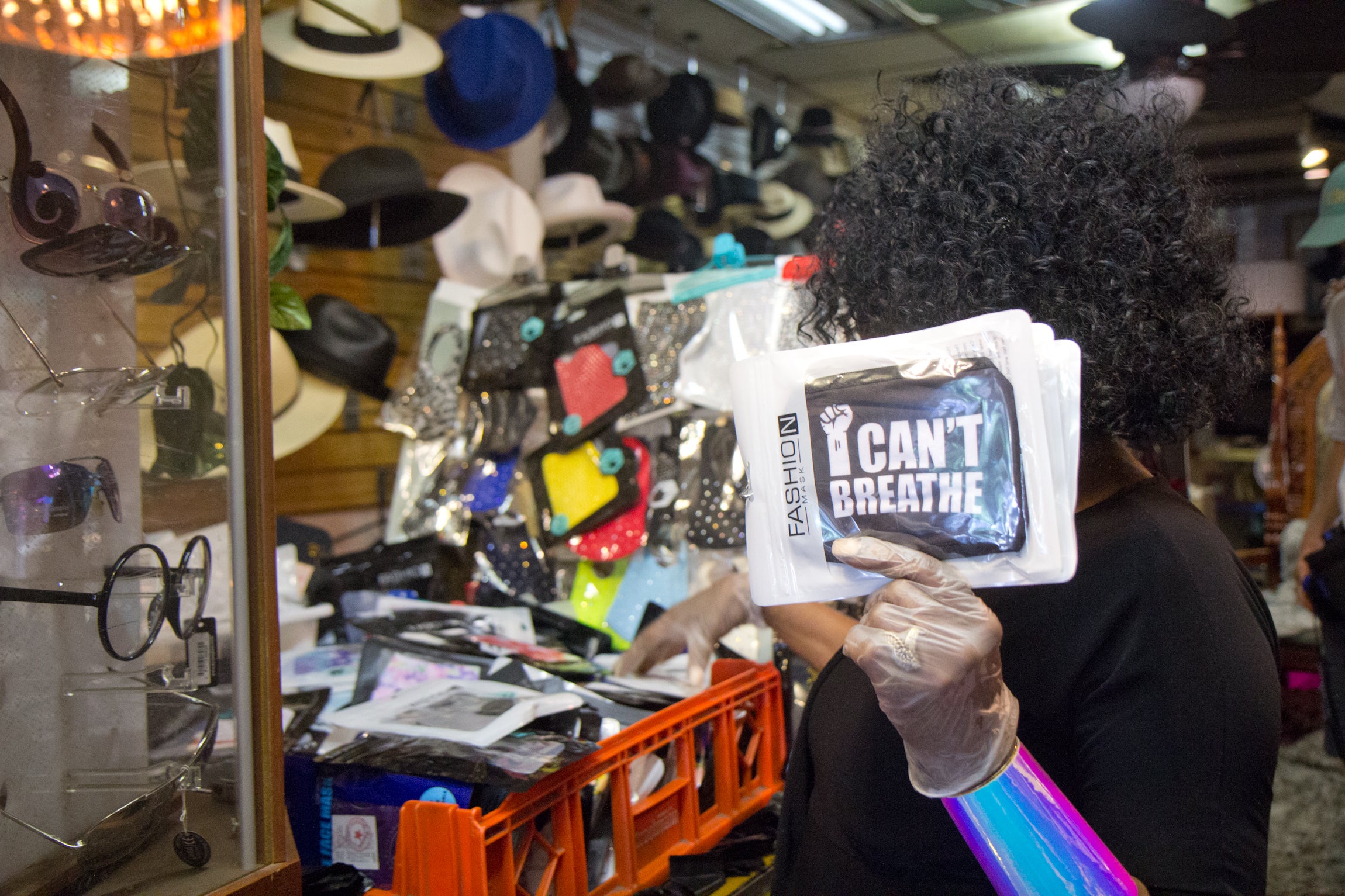
This financial stress is all the worse because Hosey is going through it alone. Her romantic partner of 10 years, Clifton Louis Lowery, died of COVID-19 in late April.
“[He was] a loving, smart, well-educated, gentle giant,” Hosey said, crying.
But Hosey has no plans to close anytime soon. She’s resolved to apply until she gets the money she needs to fix her ceiling, to keep her doors open until customers stream in once more.
That decision isn’t about the money, or her dream — now, it’s about her community.
“I have to keep standing,” Hosey said. “As a Black woman in a community that doesn’t have a lot of Black women [business owners] … I have to stand for them. I have to stand for me. I have to stand for my great-granddaughters. I have got to keep standing.”
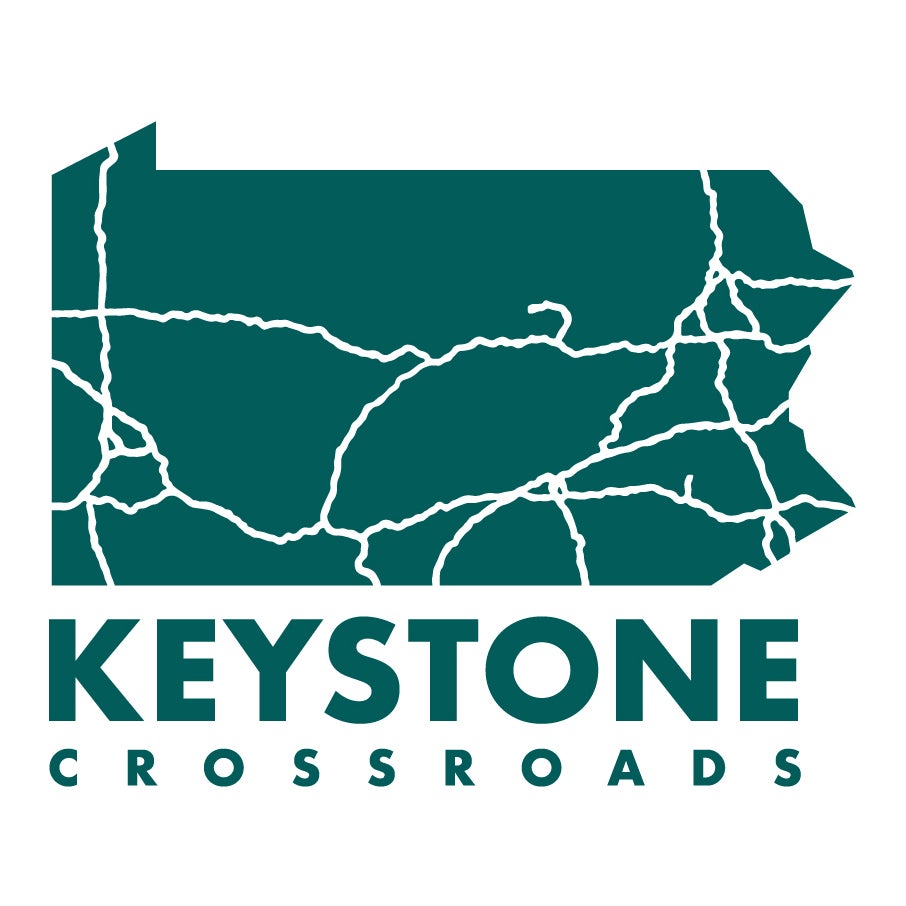
Get more Pennsylvania stories that matter
WHYY is your source for fact-based, in-depth journalism and information. As a nonprofit organization, we rely on financial support from readers like you. Please give today.



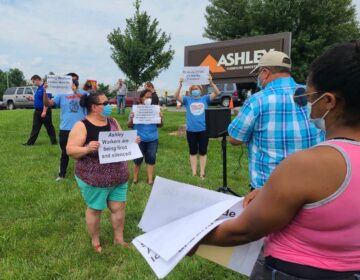
![CoronavirusPandemic_1024x512[1]](https://whyy.org/wp-content/uploads/2020/03/CoronavirusPandemic_1024x5121-300x150.jpg)
